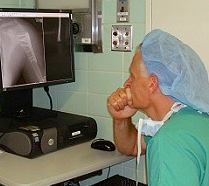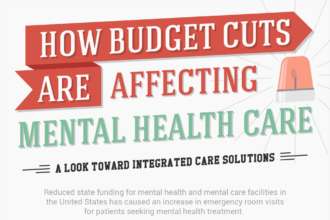
Millennials are more plugged-in than any other generation, but that doesn’t mean that just any old digital offering is going to grab their attention — to do that, you need to market to mobile.

Millennials are more plugged-in than any other generation, but that doesn’t mean that just any old digital offering is going to grab their attention — to do that, you need to market to mobile.
For marketing professionals, no demographic has generated quite as much buzz — or as much debate — as the millennials. The generation already makes up a full third of the U.S. population, yet there seems to be little consensus as to which healthcare marketing strategies can reliably command their scattered attention.
Millennials are the first generation to have been raised on the internet, and healthcare marketers of every stripe have rushed to deploy digital initiatives in order to gain their favor. But too often, these campaigns end up driving high costs and reaping few rewards.
As Asher Cameron, VP of Account Services for Infuse Medical, explained in a recent interview with Medsider, rapid tech adoption can drive marketers to “market digital,” rather than pursue true “digital marketing.” In other words, rather than matching their tools to their marketing goals and a target audience, many professionals are utilizing digital devices for their own sake, or simply identifying the channels that Millennials in particular prefer.
Still, “marketing digital” is in the right ballpark, as millennials do demand online engagement. But in order to be effective, digital tools and mediums must be leveraged in such a way that the millennials who need your medical device discover your messaging at precisely the moment that they’re ready to pursue treatment and make purchasing decisions.
This means that your content must be both highly individualized and have impeccable timing. But thanks to their heavy online activity, the preferences of millennials are easily discernible and, therefore, targetable.
Understand the Mobile Explosion

It’s both a cliché and a demonstrable fact that millennials always have a smartphone in hand. According to a 2014 comScore report (via IBT), one fifth of all millennials access the internet exclusively via mobile — unsurprising when you consider the fact that over 85% of them own smartphones, according to Neilsen. In fact, mobile activity now accounts for 60% of all digital media consumption, as comScore reports.
So how are healthcare consumers spending all that time online? Apparently, as a practical means to an end: according to recent data from Pew Research, 72% of internet users go online to find healthcare information. This means that medical device marketers have an active and captive audience and simply have to break down this demographic to find core target groups.
Indeed, many millennial-directed campaigns fail because they assume that millennials are a unified, homogenous group. But as Tyler Durbin, a Marketing Manager at GSW, noted in an article on PM360, millennials are truly “focused on finding care that is the most effective use of their time and money.”
Each individual has specific needs and little time, meaning they will ignore any content that isn’t hyper-personalized and easily accessible from their mobile devices. This content usually takes the form of valuable medical information or advice and, at best, offers and promotions for a medical device or product that they are actively pursuing.
Place an Emphasis on Targeted Marketing and Ease of Use
 Because millennials have grown up in a digital world that caters to them, they respond most strongly when marketing content proactively addresses their healthcare concerns. Considering the prevalence of mobile healthcare search, marketers should use direct-to-patient advertising — Search Engine Marketing (SEM), contextual advertising, or display advertising — to draw in millennial customers who express a need for a specific medical device. When smart marketing effectively matches patients with services, there’s less need to actually sell your product.
Because millennials have grown up in a digital world that caters to them, they respond most strongly when marketing content proactively addresses their healthcare concerns. Considering the prevalence of mobile healthcare search, marketers should use direct-to-patient advertising — Search Engine Marketing (SEM), contextual advertising, or display advertising — to draw in millennial customers who express a need for a specific medical device. When smart marketing effectively matches patients with services, there’s less need to actually sell your product.
Similarly, those efforts should direct customers to responsive, high-impact websites that not only perform well on mobile, but help tell the story of the subject using relatable language. Along the same lines, social media and online communities have become a primary source for patient testimony and referral — sites should enable customers to share their experiences and generate word-of-mouth momentum.
As Margaret Coughlin, VP Chief of Marketing and Communications for Boston Children’s Hospital, explained to AdAge: “Patients really want an outlet for telling their stories, and social is such a beautiful way for people to do that.”
In essence, millennials expect their online healthcare experience to mirror their own actions – they must be able to use mobile across the customer journey. Moreover, their search queries should return relevant content that allows them to make a purchasing decision quickly, or at least settle on a product to pursue through a provider.
(Main image credit: Pexels)
![]()










